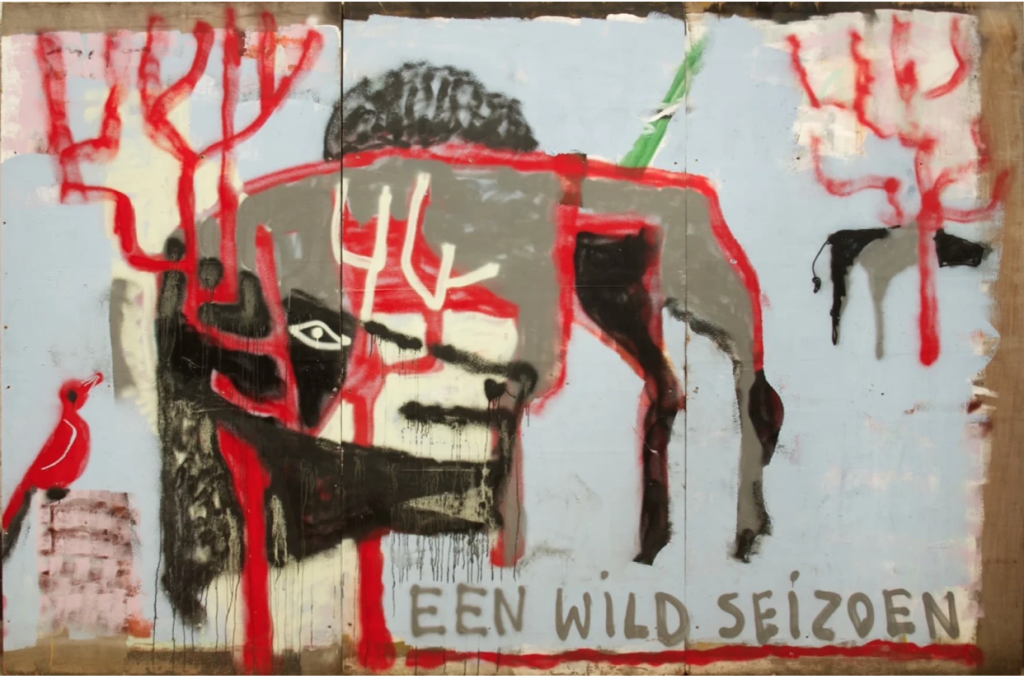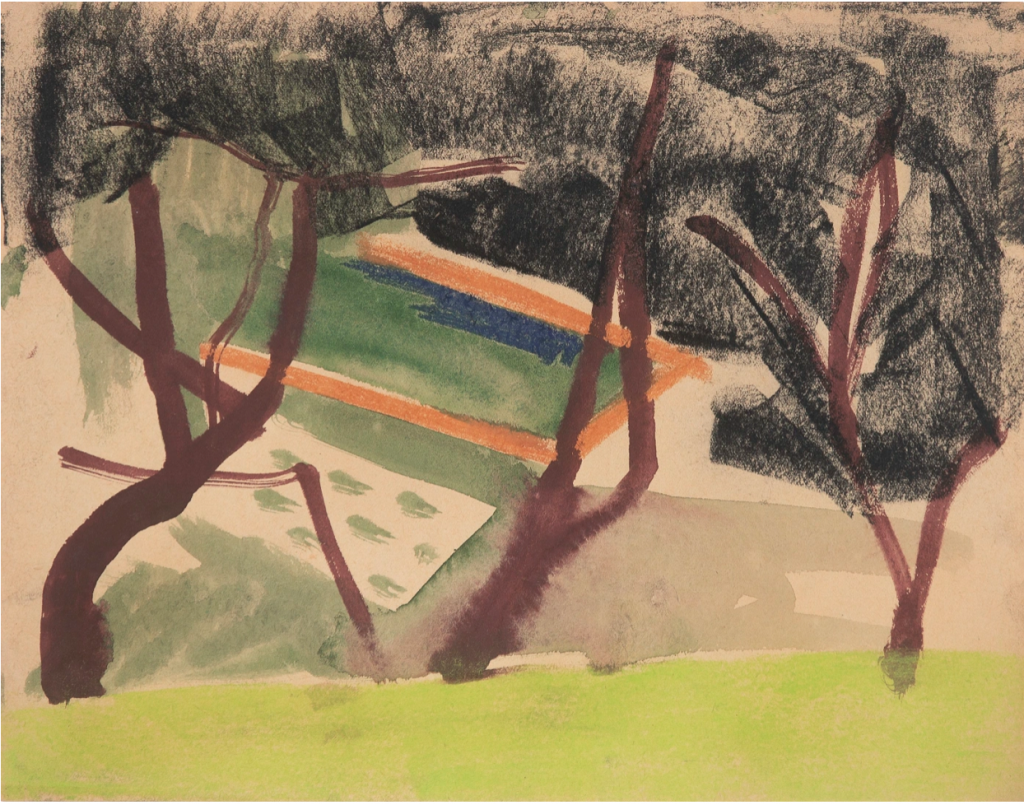#MEETTHEARTIST Frederik Lizen
During Art Rotterdam you can see the work of hundreds of artists from all over the world. In this series, we highlight a number of artists who will show remarkable work during the fair.

Not all artists thrive on a structured artist's existence, in which the studio serves as a nearly magical safe haven, in which all of it has to take place. The Belgian artist Frederik Lizen, who has been working under the synonym En plein public since 2010, prefers to work outside. Usually in an urban context in Antwerp, where he lives and works. Within the city, he is mainly interested in the non-spaces and other types of grey public spaces. He prefers to paint his colourful works on the wooden fences that shield construction sites from the outside world, basically the opposite of a blank canvas. Sometimes Lizen takes the concept of 'en plein air' more literally, when he flees to the countryside. There, he exchanges his usual modus operandi — the use of spray paint, ink, collage and acrylic on monumental panels — for the more classical and small-scale use of watercolour and crayon on paper. The artist does have a studio, but he considers it more as a laboratory for experimentation, the place where he stores his materials. Perhaps his real studio is the gigantic building site on the Pelikaanstraat in Antwerp, where he came to an agreement with the project developer. It means that he is able to paint a hundred and fifty meter long wall of plywood panels.
As an artist, Lizen moves between two worlds, neither of which really feel like home: the world of contemporary painting and the world of graffiti. He prefers working in the public space because it literally brings his works to life. And it is precisely this changeability and spontaneity that are an essential part of the work. As soon as a work is left in the open air, Lizen loses control over it. The work is not only subject to weather conditions, but also to (street) artists and drunken students who paint over his work, or the police who sandblast or remove his work — as was the case when he made a critical work on the tragic fate of George Floyd, in which he also added references to the Belgian police, to indicate that it is not just an American problem. This socially critical approach is characteristic of his work, often executed with a good dose of humour. And it is precisely the limitations of working in the city that force the artist to work quickly with a limited number of materials. As a result, he developed a specific visual language.

The conscious and unconscious adjustments to his work are an essential part of his working process. In many cases, Lizen returns to a particular work after a while, to continue working on it. Little remained of the work that read 'I can't breathe' after the intervention of the police, but the remaining layers of paint suddenly imbued the panel with an abstract quality. Lizen then sold the work to a collector. Lifting the work from the public space to a white cube immediately provides it with a new context. But the artist himself determines which works are given an art context and which works end up in a waste container. Lizen's work actually represents a certain democratic ideal: he invites people to intervene and that doesn't stop with the creative process. In an interview with the Royal Museum of Fine Arts Antwerp, he noted that any buyer of his work has the freedom to continue working with it at will. Lizen: “If a work is sold, the owner can do what he wants with it: turn it into a cabinet or something… So the exhibition is not a final stage for me.”
Among other things, Lizen completed an Arteventura residency in Andalusia and he showed his work at SMAK during the Biennale Van België and in the Vebeke Foundation.
During Art Rotterdam, Frederik Lizen's work will be shown in the Solo/Duo Section, presented by Geukens & De Vil.


